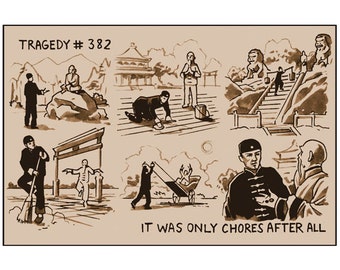
But the traveler looked around and saw nothing other than an endless stretch of sand, nothing of the "my works" at which even the mighty was supposed to look and despair! In the letters carved on the pedestal, he has also addressed to "ye Mighty", meaning 'powerful' kings of the future all of whom he had supposed would be much inferior to him. This suggests that the tyrant used to take it for granted that his name would be immortal in an everlasting empire of his, and therefore, the people would look at the statue and his "works" - whatever it means - and 'despair' out of awe, amazement and fear. Here was one of his enormous statues under which he had ordered the artist to write the words: "My name is Ozymandias, King of Kings… Look on my works, ye Mighty, and despair". As the other details clearly reveal, the legs belonged to a statue of some ancient tyrant who had an empire with its capital at this place.

As the traveler had told this speaker, there were two "vast and trunkless legs of stone" in the midst of a desert. The poem develops only logically as the writer turns and twists the narration, satirizing the tyrant, specifically, and also suggesting the general theme of the vanity of power and pride. The story quietly satirizes the so-called great ruler as nothing great in front of the "level sands" of time. The present speaker retells us the story in the exact words of the original reporter: the whole poem is in the form of a single stretch of direct speech.

The traveler had described a broken statue of an ancient tyrant to this speaker.


 0 kommentar(er)
0 kommentar(er)
